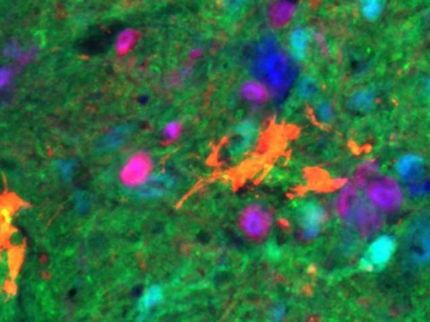Nanomagnets guide stem cells to damaged tissue
Advertisement
Microscopic magnetic particles have been used to bring stem cells to sites of cardiovascular injury in a new method designed to increase the capacity of cells to repair damaged tissue, UCL scientists announced today. The cross disciplinary research, published in The Journal of the American College of Cardiology: Cardiovascular Interventions, demonstrates a technique where endothelial progenitor cells – a type of stem cell shown to be important in vascular healing processes – have been magnetically tagged with a tiny iron-containing clinical agent, then successfully targeted to a site of arterial injury using a magnet positioned outside the body.
Following magnetic targeting, there was a five-fold increase in cell localisation at a site of vascular injury in rats. The team also demonstrated a six-fold increase in cell capture in an in vitro flow system. Although magnetic fields have been used to guide cellular therapies, this is the first time cells have been targeted using a method directly applicable to clinical practice. The technique uses an FDA (U.S. Food and Drug Administration) approved agent that is already used to monitor cells in humans using MRI.
Dr Mark Lythgoe, UCL Centre for Advanced Biomedical Imaging, the senior author on the study, said: "Because the material we used in this method is already FDA approved we could see this technology being applied in human clinical trials within 3-5 years. It's feasible that heart attacks and other vascular injuries could eventually be treated using regular injections of magnetised stem cells. The technology could be adapted to localise cells in other organs and provide a useful tool for the systemic injection of all manner of cell therapies. And it's not just limited to cells – by focusing tagged antibodies or viruses using this method, cancerous tumours could be much more specifically targeted"
Other news from the department science
Most read news
More news from our other portals
See the theme worlds for related content
Topic world Antibodies
Antibodies are specialized molecules of our immune system that can specifically recognize and neutralize pathogens or foreign substances. Antibody research in biotech and pharma has recognized this natural defense potential and is working intensively to make it therapeutically useful. From monoclonal antibodies used against cancer or autoimmune diseases to antibody-drug conjugates that specifically transport drugs to disease cells - the possibilities are enormous

Topic world Antibodies
Antibodies are specialized molecules of our immune system that can specifically recognize and neutralize pathogens or foreign substances. Antibody research in biotech and pharma has recognized this natural defense potential and is working intensively to make it therapeutically useful. From monoclonal antibodies used against cancer or autoimmune diseases to antibody-drug conjugates that specifically transport drugs to disease cells - the possibilities are enormous























































